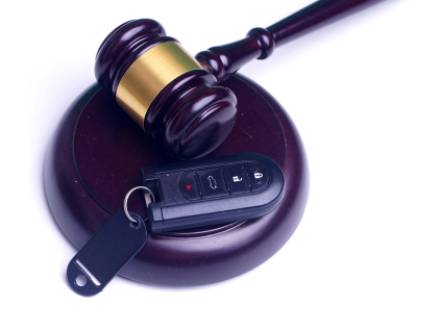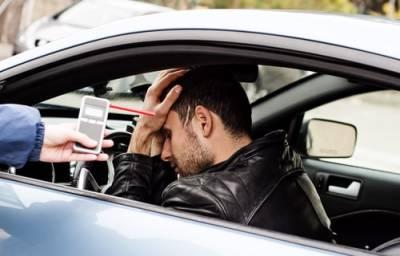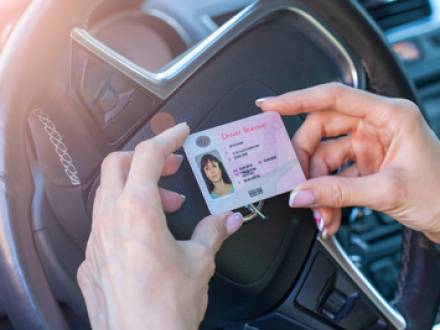Recent Blog Posts
Can a DUI Be Reduced to Reckless Driving in Connecticut?
 A DUI charge can sometimes be reduced to reckless driving in Connecticut, depending on the facts of the case and the strength of the evidence. If you have been charged with DUI, you are likely worried about how this might impact your license, your job, and your future. Although these feelings are normal, all hope is not lost.
A DUI charge can sometimes be reduced to reckless driving in Connecticut, depending on the facts of the case and the strength of the evidence. If you have been charged with DUI, you are likely worried about how this might impact your license, your job, and your future. Although these feelings are normal, all hope is not lost.
A DUI charge can have serious consequences, but it does not automatically mean you will be convicted. In some cases, there may be opportunities to reduce the charge. Our Fairfield County, CT DUI defense lawyer helps people understand their options and take steps to protect their future.
What Is the Difference Between DUI and Reckless Driving in Connecticut?
DUI and reckless driving are separate offenses under Connecticut law. DUI is defined under Connecticut General Statutes § 14-227a, which makes it illegal to drive while impaired by alcohol or drugs.
Consequences of a DUI Much More Than Just Loss of License
 If you are facing a DUI charge in Connecticut, you may be worried about what comes next. A common misconception is that the only consequence is losing your license. However, a DUI can affect your finances, your record, and your future in ways that are not always obvious. Keep in mind, you have the right to challenge the charge.
If you are facing a DUI charge in Connecticut, you may be worried about what comes next. A common misconception is that the only consequence is losing your license. However, a DUI can affect your finances, your record, and your future in ways that are not always obvious. Keep in mind, you have the right to challenge the charge.
If you are dealing with a DUI in 2026, our Stamford, CT DUI defense lawyer can help you understand what to expect and build a strong case to protect your rights.
What Criminal Penalties Can Result From a DUI in Connecticut?
Possible criminal penalties for a DUI conviction under Connecticut General Statutes § 14-227a include:
Parental Liability Relating to Criminal Acts of a Minor
 As of 2026, parents in Connecticut can sometimes be held financially liable for their children's criminal acts. While the juvenile justice system often focuses on rehabilitation, Connecticut law recognizes that parents may share responsibility when a minor causes harm.
As of 2026, parents in Connecticut can sometimes be held financially liable for their children's criminal acts. While the juvenile justice system often focuses on rehabilitation, Connecticut law recognizes that parents may share responsibility when a minor causes harm.
In 2025, there were over 31,900 youth confined in juvenile prisons and jails across the United States. If your child has been accused of a crime, understanding your legal obligations can help you respond with greater confidence. A Fairfield County, CT juvenile defense lawyer can explain how the law applies to your situation and help your family move forward.
Do I Need a Lawyer to Buy a House in Connecticut?
 Buying a home is often the largest financial transaction in someone’s life. Having legal guidance helps reduce risk and confusion during the process. In Connecticut, you are not legally required to hire a lawyer to buy a house, but many buyers do. Home purchases in the state remain very active. In 2025, Connecticut saw about 35,275 homes sold statewide, reflecting steady demand and a fast-moving real estate market.
Buying a home is often the largest financial transaction in someone’s life. Having legal guidance helps reduce risk and confusion during the process. In Connecticut, you are not legally required to hire a lawyer to buy a house, but many buyers do. Home purchases in the state remain very active. In 2025, Connecticut saw about 35,275 homes sold statewide, reflecting steady demand and a fast-moving real estate market.
In Connecticut, lawyers often play a central role in most residential real estate closings. If you plan on buying a home in 2026, our Stamford, CT real estate lawyer can help make sure your purchase is handled correctly.
Connecticut’s First-Time DUI Offender Programs
 A first-time DUI arrest can feel overwhelming, especially if you have never been in trouble before. Many people want to know if there is a way to avoid a conviction and move forward. In Connecticut, diversionary options are a real part of the DUI system. For example, Connecticut Judicial Branch statistics for fiscal year 2024–2025 show 4,415 OUI cases were disposed of as "dismissed," which often happens after a person successfully completes a first-time offender education program.
A first-time DUI arrest can feel overwhelming, especially if you have never been in trouble before. Many people want to know if there is a way to avoid a conviction and move forward. In Connecticut, diversionary options are a real part of the DUI system. For example, Connecticut Judicial Branch statistics for fiscal year 2024–2025 show 4,415 OUI cases were disposed of as "dismissed," which often happens after a person successfully completes a first-time offender education program.
As of 2026, Connecticut courts still offer first-time offender options in qualifying cases, but approval is never automatic, and the requirements are strict. Our Fairfield County, CT DUI defense lawyer can help you understand whether a first-time program may fit your situation and how to apply.
What Are the Penalties for a First-Offense DUI in Connecticut?
 As of 2026, a first-offense DUI in Connecticut can result in license suspension, fines, mandatory alcohol education, and possible jail time. This is true even if no crash occurred. Many people are surprised to learn that a first DUI in Connecticut still comes with serious penalties, even if they have never been in trouble before.
As of 2026, a first-offense DUI in Connecticut can result in license suspension, fines, mandatory alcohol education, and possible jail time. This is true even if no crash occurred. Many people are surprised to learn that a first DUI in Connecticut still comes with serious penalties, even if they have never been in trouble before.
DUI charges are common nationwide. In 2025, law enforcement agencies reported more than 800,000 DUI arrests across the United States in the prior year, showing how frequently drivers face these charges.
If you were arrested in Fairfield County, understanding the penalties and timelines tied to a first DUI is critical. A Stamford, CT DUI defense lawyer can help you understand what happens next and how to protect yourself early in the process.
Trying a Juvenile as an Adult in Connecticut
 As of 2026, Connecticut law still allows certain juvenile cases to be transferred to adult court based on age and the type of offense alleged. These cases usually involve serious charges and can move quickly, often catching families off guard.
As of 2026, Connecticut law still allows certain juvenile cases to be transferred to adult court based on age and the type of offense alleged. These cases usually involve serious charges and can move quickly, often catching families off guard.
In 2025, the Prison Policy Initiative reported that about 31,900 children and adolescents were confined in juvenile justice facilities nationwide. When this happens, the consequences can follow a child for years, which makes early understanding and guidance especially important.
If your child is facing a charge that could end up being tried in adult court, you are likely dealing with fear, uncertainty, and the need to make urgent decisions. Speaking with a Fairfield County, CT juvenile defense lawyer early can help you understand what is happening and what steps can be taken to protect your child’s future.
Can I Get a Hardship License After a DUI in Connecticut?
 Connecticut law enforcement sees many DUI stops and charges every year. For example, state police reported 35 DUI-related arrests during the 2025 Labor Day weekend alone. If you have lost your license because of a DUI charge, Law Offices of Daniel P. Weiner can help you understand your options.
Connecticut law enforcement sees many DUI stops and charges every year. For example, state police reported 35 DUI-related arrests during the 2025 Labor Day weekend alone. If you have lost your license because of a DUI charge, Law Offices of Daniel P. Weiner can help you understand your options.
In Connecticut, some drivers may be able to drive again on a limited basis. It depends on the details of your case. Contact us today to speak with a Fairfield County, CT DUI defense lawyer who has helped people facing DUI-related issues for years.
What Is a Hardship License in Connecticut?
Connecticut does not officially use the term "hardship license." Instead, the state allows limited driving through the Ignition Interlock Device Program (IID).
An IID is installed in your vehicle, and you must blow into the device before the car will start. If alcohol is detected, the vehicle will not turn on. This program allows some drivers to drive under strict rules instead of serving a full suspension, with no driving allowed.
Can Passengers Face Charges for a DUI Stop in Connecticut?
 Being a passenger during a DUI stop can be stressful, especially if police begin asking questions or ordering everyone out of the vehicle. Many people assume passengers cannot get into legal trouble because they were not driving. Typically, passengers are not charged with DUI, but they can face other criminal charges depending on what happens during the stop.
Being a passenger during a DUI stop can be stressful, especially if police begin asking questions or ordering everyone out of the vehicle. Many people assume passengers cannot get into legal trouble because they were not driving. Typically, passengers are not charged with DUI, but they can face other criminal charges depending on what happens during the stop.
If you were a passenger during a DUI stop, speaking with a Stamford, CT DUI defense lawyer can help you understand your rights and risks. As of 2025, Connecticut DUI laws focus primarily on drivers, but passengers are not completely immune from legal consequences.
Can a Passenger Be Charged With DUI in Connecticut?
In most cases, a passenger is not going to be charged with driving under the influence, primarily because they were not driving. Connecticut’s DUI law applies to people who operate or have physical control of a motor vehicle.
CT Juvenile Interrogations: What Parents Must Know
 Connecticut parents could be shocked to find their child was questioned by the police without a parent present. More unpleasant surprises could be in store when they find that statements made by their child are being used as evidence against him or her. While Connecticut has strict notification requirements, these rules do not always prevent teens from speaking with officers without a parent present. And since teens are vulnerable to pressure by police, these statements could turn out to be involuntary, unreliable, or legally inadmissible.
Connecticut parents could be shocked to find their child was questioned by the police without a parent present. More unpleasant surprises could be in store when they find that statements made by their child are being used as evidence against him or her. While Connecticut has strict notification requirements, these rules do not always prevent teens from speaking with officers without a parent present. And since teens are vulnerable to pressure by police, these statements could turn out to be involuntary, unreliable, or legally inadmissible.
In fact, teenagers are much more likely than adults to give false or unreliable statements, and in Connecticut’s fast-moving juvenile system, this can turn routine questioning into a constitutional minefield when parents are not present. Parents must understand when a police interview crosses constitutional lines so they can properly protect their child’s future. A Fairfield County, CT juvenile crimes lawyer can help protect your child’s rights and guide you through the process.







